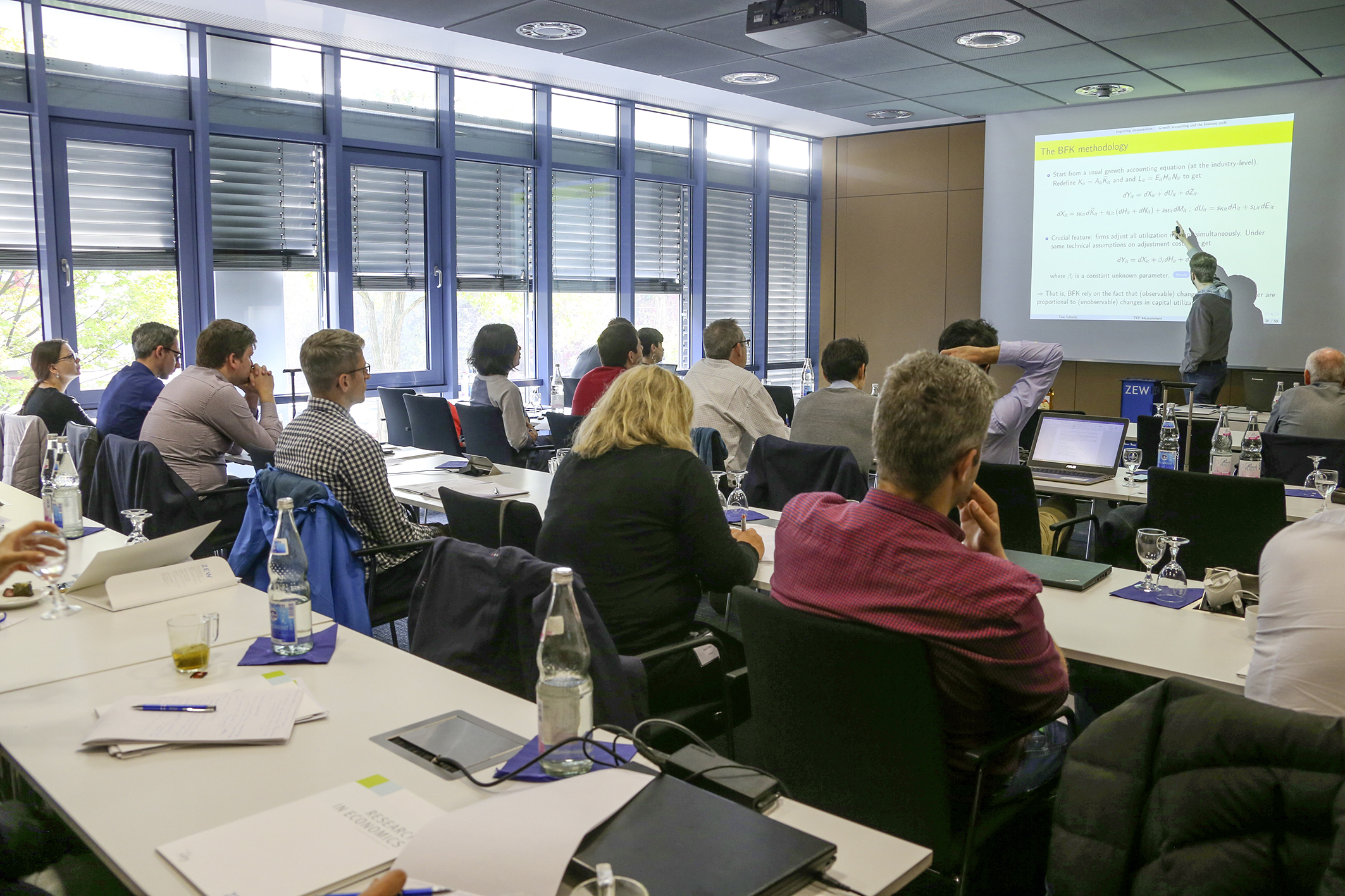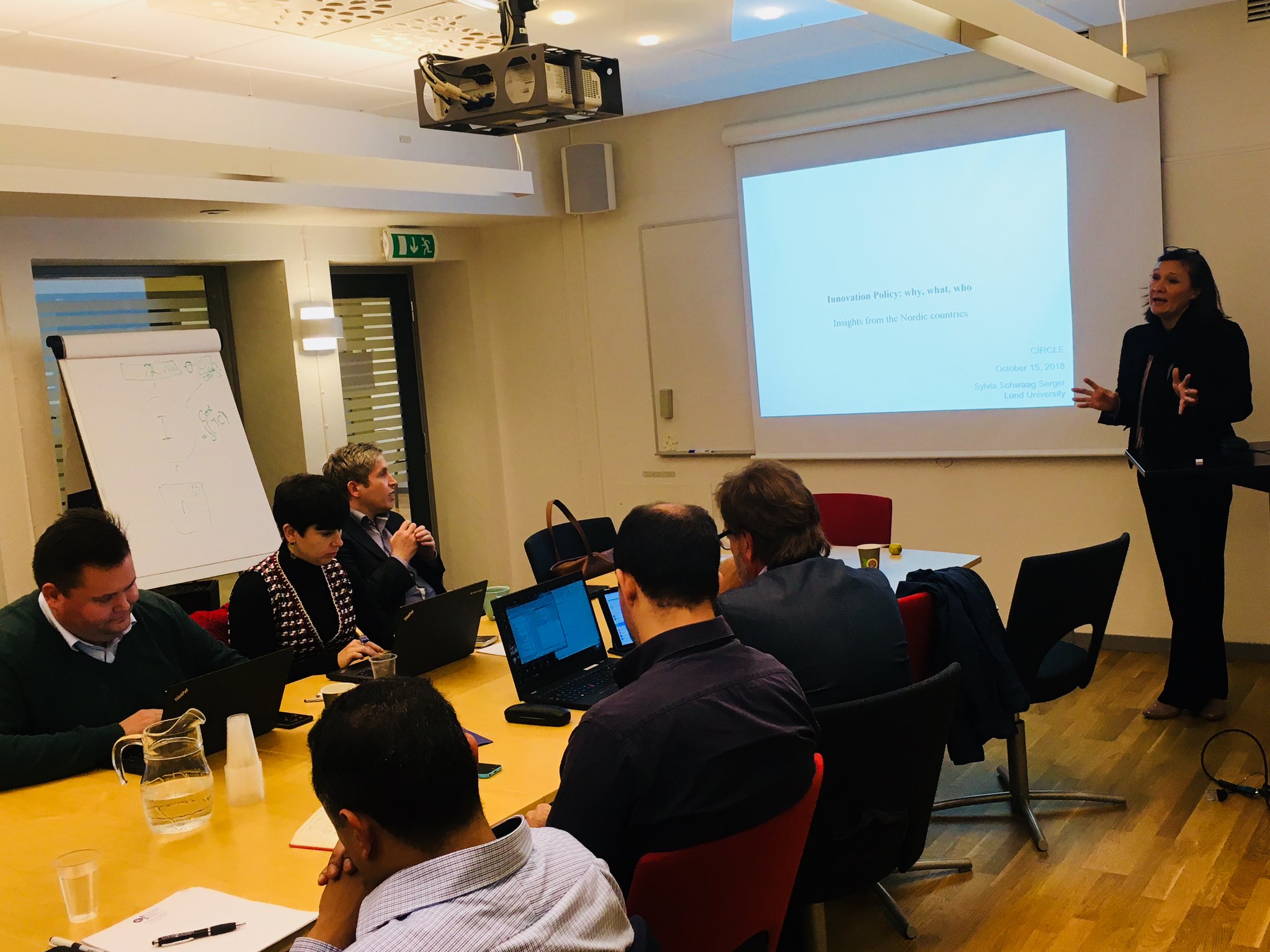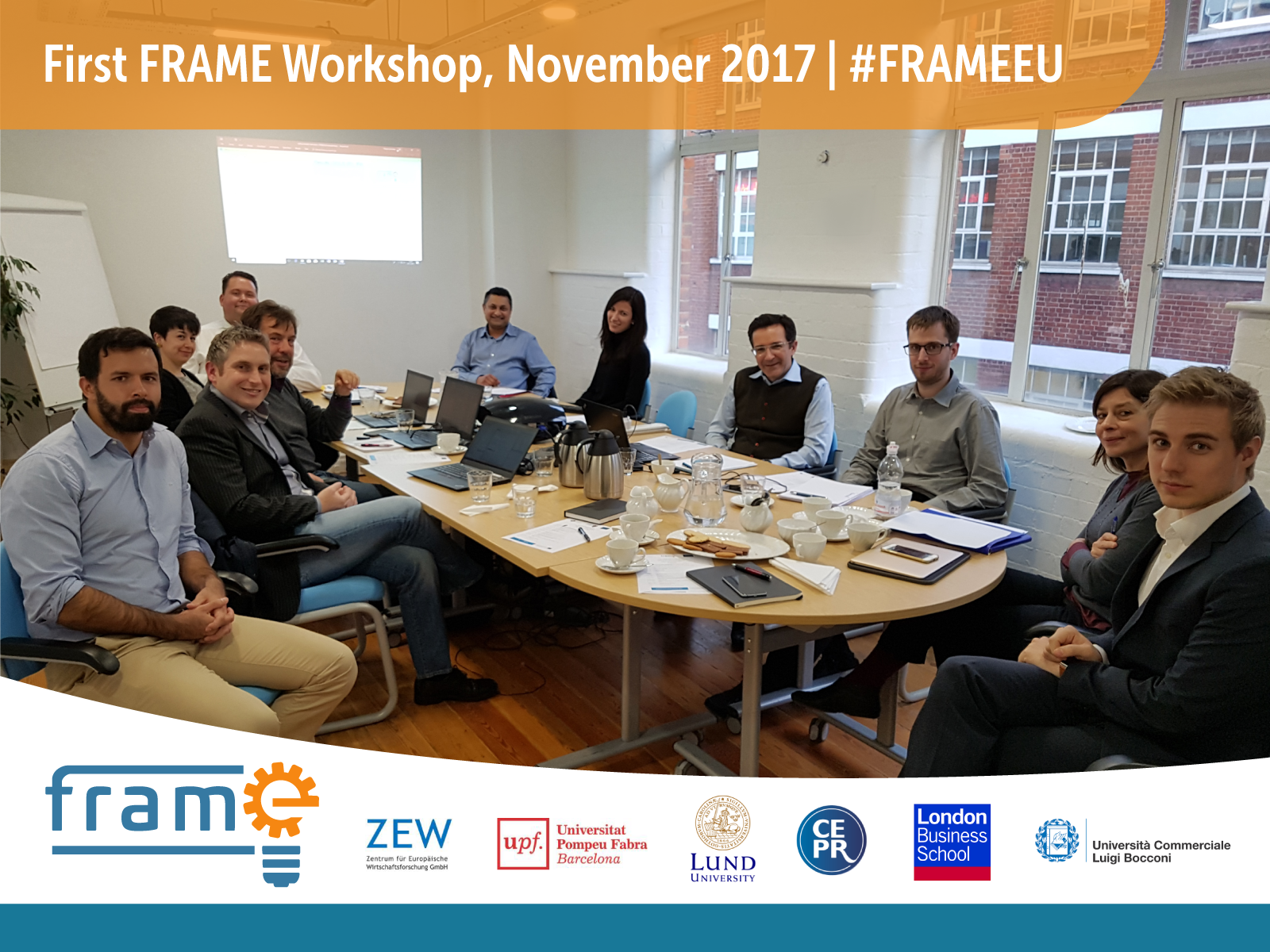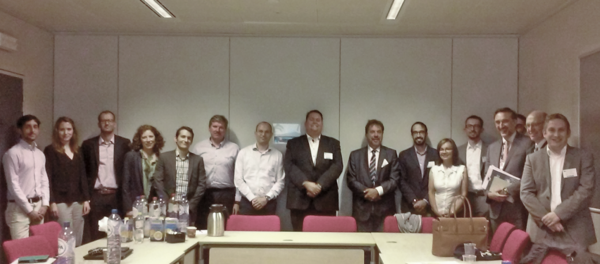Workshops
FRAME Research Workshop on 18-19 October 2018 in Mannheim
The research training gathered various types of FRAME results users (central banks, governmental agencies, academia) in order to foster the diffusion of the models and methods within the FRAME projects. The FRAME contributions do not only aim at addressing relevant scientific questions but also at providing new tools to better evaluate and design policies.
FRAME Research Training - Bridging the Gap Between Technological Change and Economic Modelling
2nd FRAME Workshop on 15th-16th October in Lund
The second FRAME Research workshop took place in Lund, on the 15-16 October 2018 and was hosted by the Centre for Innovation, Research and Competence in the Learning Economy (CIRCLE). The workshop was opened by Sylvia Schwaag Serger (Lund University) who gave a welcome speech about the ongoing challenges to design research and innovation policies in Europe. Besides the FRAME project members, Giuseppe Berlingieri (OECD), Guido Cozzi (St.Gallen University), Joseba Martinez (London Business School) presented their recent work on the effect of business cycles and innovation policies on technological adoption, but also productivity growth and labour dynamics. The workshop represented a good opportunity for the project team to discuss the new modelling and methodological approaches by receiving feedback from a wide range of stakeholder groups.
Please find attached the agenda for the Research Workshop in Lund (PDF, not accessible, 595 KB)
Second FRAME Research Workshop - Innovation, Growth and Labour Dynamics over Business Cycles
2nd MONROE-FRAME workshop on 7th June 2018 in Brussels
The second research workshop with MONROE took place in Brussels on the 7th June 2018. The workshop gathered project members from MONROE and FRAME but also different researchers involved in European Commission research units (Joint Research Centers and Directorate Units). The second research workshop aimed at presenting the first key features of the models developed within FRAME and MONROE and their main implications in the ongoing results across the two projects. Mario Giarda and Torben Schubert presented respectively: the key assumptions behind the baseline model and its related policy implications, which was followed by Torben Schubert’s presentation explaining the strategies developed within FRAME to provide the most accurate calibrated parameters.Tom Holden presented the MONROE approach to assess the impact of innovation across sectors and countries.
1st FRAME Workshop on 10th November 2017
The Research Workshop represented a key moment in the history of the project. The different project members were able to meet face-to-face, and engaged in rich discussions about the next steps of ongoing projects as well as potential new avenues. While most of presentations were devoted to summarizing the key milestones and challenges encountered in the different Work Packages, two presentations introduced new ideas to push the scientific frontier in Work Package 5. At this point, the issues of technical feasibility and appropriate data represented critical impediments to developing these research ideas. FRAME will thereby develop new models and extensions which can be considered cutting-edge research.
1st MONROE-FRAME meeting organized by the DG RTD on 13th October 2017 in Brussels
Over this meeting the different participants (DGRTD, MONROE, and FRAME project members) discussed the complementary between the FREAME and MONROE projects, and avenues to collaborate. Both projects were funded by a H2020 grant to provide insights in order to design research innovation, spillovers and technical convergence). A key issue faced by both MONROE and FRAME is how to measure the impact of different types of innovation, or innovation efforts. The different project members elaborated their respective approchaes.





